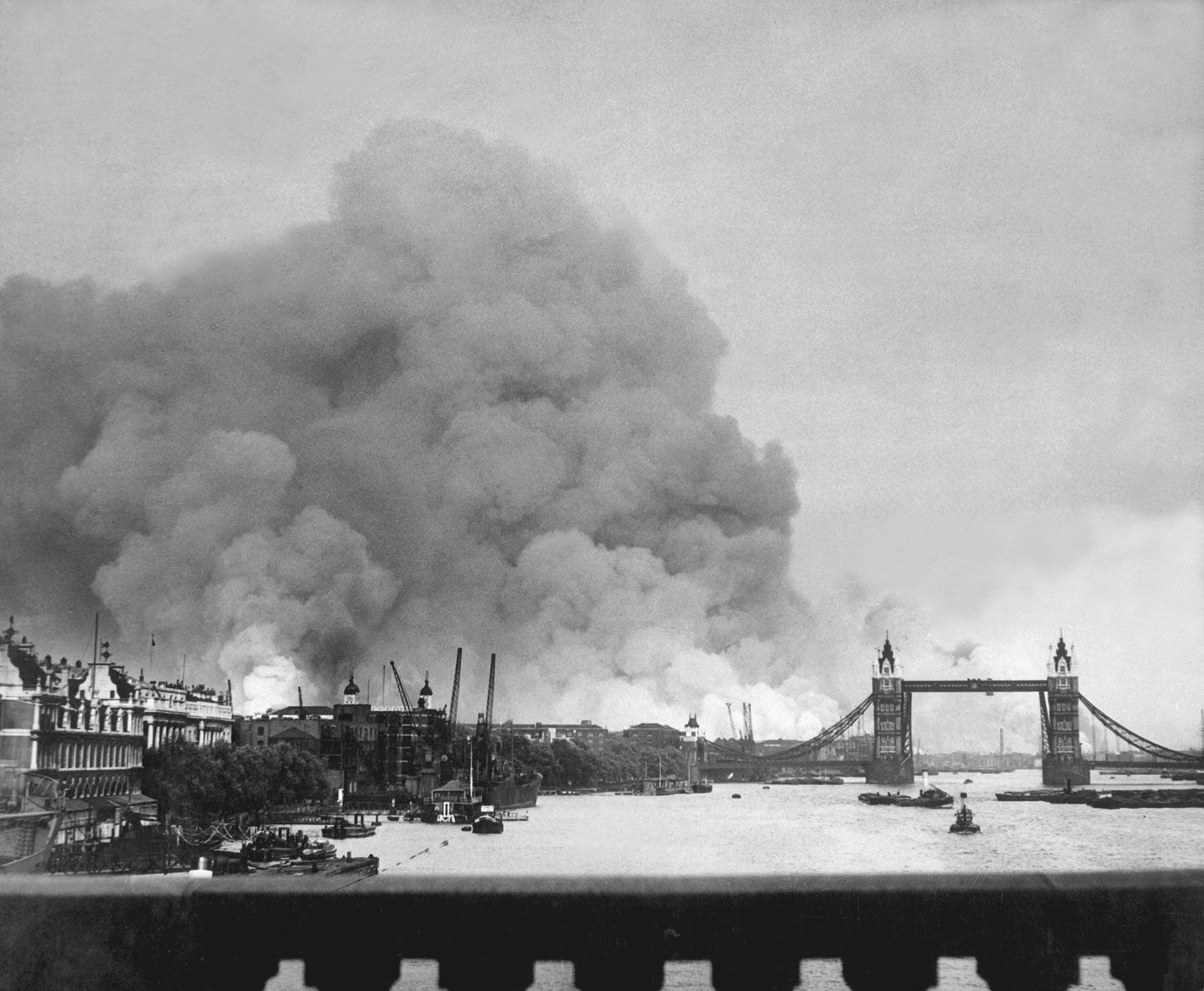The Germans had not really worked out a plan for dealing with Britain. Hitler seems to have believed that with France out of the war, Britain would make a separate, compromise peace in which Germany would dominate the Continent of Europe and Britain would retain its overseas empire.
Mixed with his hatred for England was a misleading idea that Germany and England were natural allies. There were no natural allies available to him in Britain, however. Britain had interned all German subjects in the country (including Jewish refugees) and had locked up nearly eight hundred members of the British Union of Fascists, including their leader, Sir Oswald Mosley (1896-1981). For more than four centuries Britain had gone to war rather than accept one-power domination over western and central Europe or a hostile occupation of the Low Countries.
Hitler was counting heavily on the possibility that German submarines could eventually cut off British supplies of food and raw materials from overseas and thus starve it into submission. But this would take a long time, and Hitler was impatient. The obvious thing to do was to attempt a landing in England; however, the Germans had made no real preparation for amphibious warfare and had no specially designed landing craft. A hastily assembled flotilla of miscellaneous vessels was badly damaged by British aircraft, and early in August 1940 Hitler and Goring, his air marshal, made the fateful decision to try to do the job solely with air power.
The battle of Britain that followed had two main phases. First, in August and September, the Luftwaffe attempted in daylight bombing attacks to wipe out merchant ship convoys, British airports, and fighter planes. The Royal Air Force, using the new radar technique to spot the attackers early, proved just barely strong enough to check the Germans, who began full-scale attacks with bomber fleets on August 13.
In critical actions in September the level of German losses became too great to sustain, and on September 17 Hitler postponed any invasion. Germany still had enormous air-strike capacity, but it had failed to win air superiority. This was the “nation’s finest hour,” as described by Churchill, an exceptionally effective wartime leader and a master at stirring national pride.
Though air attacks would continue against Britain until 1942, the aerial battle of Britain was over. Night bombings continued throughout 1940, but even in Coventry, where the cathedral was destroyed, the city’s industrial capacity continued. Nor did civilian morale break. Rather, the night bombings strengthened the British will to resist.
Equally crucial during the battle of Britain was the battle of the Atlantic, since it was essential that convoys from North America bringing needed supplies get through to Britain. The British navy proved equal to the task, shepherding convoys across the ocean, sweeping harbors of mines floated in by the Germans, and seeking out the highly effective German submarines.
Shipping losses for the British rose alarmingly through 1940 and into 1941. Unable to destroy the German submarines by aerial bombing, the British began to hunt them down at sea using radar. The German surface navy initially operated along the French coast and in the Indian Ocean, but it was beaten back from the Atlantic when the heavy battleship Bismarck was sunk in May 1941 by a cornbined air and cruiser attack.
Thereafter the British controlled the surface of the sea, while the Germans still prowled beneath the waters. Although Allied and neutral shipping losses ran to 23 million tons during the war, radar, sonar, escort carriers, and destroyer groups effectively neutralized the German submarine advantage.

